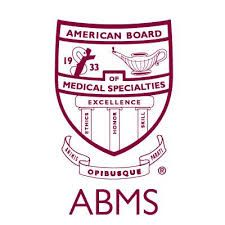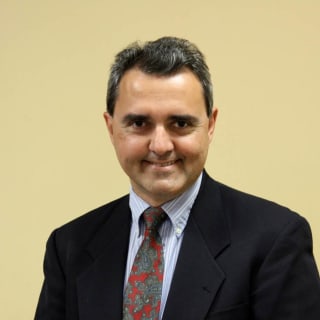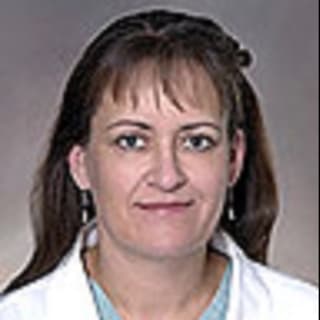Dr. Koerner is on Doximity
As a Doximity member you'll join over two million verified healthcare professionals in a private, secure network.
- Gain access to free telehealth tools, such as our “call shielding” and one-way patient texting.
- Connect with colleagues in the same hospital or clinic.
- Read the latest clinical news, personalized to your specialty.
Office
3181 Sw Sam Jackson Park Rd
Mail Code Hrc-5n
Portland, OR 97239Phone+1 503-494-3411
Education & Training
 Albert Ludwigs University Faculty of MedicineClass of 1997
Albert Ludwigs University Faculty of MedicineClass of 1997
Certifications & Licensure
 OR State Medical License 2006 - 2025
OR State Medical License 2006 - 2025 American Board of Anesthesiology Anesthesiology
American Board of Anesthesiology Anesthesiology- United Council of Neurologic SubpecialtiesNeurocritical Care
Awards, Honors, & Recognition
- Junior Faculty Award Association of University Anesthesiologists, 2012
- Silver Hammer Teaching Award Department of Neurology, Oregon Health & Science University, 2011
- K02 Independent Investigator Award NINDS, 2010
- Join now to see all
Publications & Presentations
PubMed
- 5 citationsRoadmap for Conducting Neuroscience Research in the COVID-19 Era and Beyond: Recommendations From the SNACC Research Committee.Phillip E. Vlisides, Keith M. Vogt, Dinesh Pal, Eric Schnell, William M. Armstead
Journal of Neurosurgical Anesthesiology. 2021-04-01 - 35 citationsPerioperative Management of Adult Patients With External Ventricular and Lumbar Drains: Guidelines From the Society for Neuroscience in Anesthesiology and Critical Care.Abhijit V. Lele, Amie L. Hoefnagel, Nina Schloemerkemper, David Wyler, Nophanan Chaikittisilpa
Journal of Neurosurgical Anesthesiology. 2017-07-01 - 6 citationsPeroxisomal Translocation of Soluble Epoxide Hydrolase Protects against Ischemic Stroke InjuryJonathan W. Nelson, Wenri Zhang, Nabil J. Alkayed, Ines P. Koerner
Journal of Cerebral Blood Flow and Metabolism. 2015-07-01
Journal Articles
- Peroxisomal translocation of soluble epoxide hydrolase protects against ischemic stroke injuryNelson JW, Zhang W, Alkayed NJ, Journal of Cerebral Blood Flow and Metabolism, 1/1/2015
- Extracranial hypothermia during cardiac arrest and cardiopulmonary resuscitation is neuroprotective in vivoHutchens MP, Fujiyoshi T, Herson PS, Therapeutic Hypothermia and Temperature Management, 1/1/2014
- Inhibition of Soluble Epoxide Hydrolase after Cardiac Arrest/Cardiopulmonary Resuscitation Induces a Neuroprotective Phenotype in Activated Microglia and Improves Neur...Wang JM, Fujiyoshi T, Kosaka Y, Raybuck JD, Lattal KM, Ikeda M, Herson PS, Journal of Cerebral Blood Flow and Metabolism, 1/1/2013
- Join now to see all
Books/Book Chapters
Abstracts/Posters
- Deletion of CD36 induces M2 response to injury and supports ischemic toleranceShimizu T, Chen Y, Mader S, 45th Annual Meeting of the American Society of Neurochemistry 2014, Long Beach, CA, 1/1/2014
- Peroxiredoxin-1 and Toll-like receptor 2 pathway contributes to neurotoxic microglial activation after cardiac arrestIkeda M, Fujiyoshi T, Mader S, “Best Abstracts: Basic Science” Session at the ASA Annual Meeting 2014; SNACC Annual Meeting 2014, New Orleans, LA, 2014; New Orleans, LA, 2014, 1/1/2014
- Microglia are activated and contribute to delayed neuronal death after cardiac arrest/cardiopulmonary resuscitationFujiyoshi T, Mader S, SNACC Annual Meeting 2013, San Francisco, CA, 1/1/2013
- Join now to see all
Lectures
- Microglia are activated to a neurotoxic phenotype and exacerbate delayed neuronal death after cardiac arrestCairns, Australia - 1/26/2015
- Peroxiredoxin-1: A Novel Danger Signal after Cardiac ArrestOregon Health & Science University, Portland, OR - 1/1/2015
- Peroxiredoxin-1 is a Novel Danger Signal after Cardiac ArrestOregon Health & Science University, Portland, OR - 1/1/2015
- Join now to see all
Professional Memberships
- Neurocritical Care Society (NCS)Member
- Society for Neuroscience in Anesthesiology and Critical Care (SNACC)Member
- Association of University Anesthesiologists (AUA)Member
- Member
Viewing the full profile is available to verified healthcare professionals only.
Find your profile and take control of your online presence:











